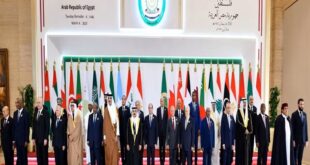For most of the world’s diplomats, Joe Biden’s foreign policy slogan “America is Back” is no metaphor.

On global issues from climate change, to non-proliferation and human rights, the US under the Trump administration had literally gathered up its papers and pens and left the meeting room. Biden’s election victory and choice of committed internationalists to lead the foreign policy team, means that there will actually be someone sitting in what has been an empty chair.
“There’s a lot of relief that we’re going to have a much more normal US to deal with,” said Richard Gowan, the UN director at the International Crisis Group. “It has been symptomatic of US diplomacy in the last couple of years that other countries have really struggled to get a clear picture of what US policies are at times on issues like Libya or Yemen.”
Gowan said one of the many clear winners on the world stage from Biden’s win is the UN secretary general, António Guterres, who has spent four years straining to make nice with Donald Trump to prevent the outgoing president from pulling the plug altogether on US involvement in, and funding for, UN agencies.
“Now there’s a lot of talk that Guterres is preparing to put out lots of big ideas next year about fighting inequality, speeding up the fight against climate change, and really try to get the UN back into the centre of global conversation.”
How a slogan as all-encompassing as “America is Back” is received around the world will inevitably be a Rorschach test for what is perceived to be the “real America” that has been absent in the past four years.
In the liberal democracies in Europe, the general hope and expectation from Biden’s language and demeanour is that the America being restored includes all the best features from the past – with an added dose of humility.
“‘America is Back’ means something very different than if George W Bush had said it, or even if Obama had said it in the context,” said Constanze Stelzenmüller, a senior fellow at the centre on the US and Europe at the Brookings Institution. “And this means that this is a different kind of America – not a rapacious America First at whatever price, but one that makes a very sober assessment of its options and limitations of power.”
The clear lack of US popular support for adventurism in foreign support – which was effectively channeled by Trump – the failures in Libya, Yemen and Syria, and the loss of relative power and prestige of the past four years, suggest that the country returning to the world stage is a chastened America.
“I think that Obama was still able to assume that America had almost unlimited power, and therefore had sovereign choices to make about international engagement, and about the way it dealt with authoritarian rivals,” Stelzenmüller said. “I think the huge difference with this administration is going to be a distinct understanding of limitations – domestic and foreign. And that puts an entirely new value on allies, and also gives allies a great deal of power.”
Some leaders and governments were clearly quite happy with the America that has been evident in the Trump era – none more than the Gulf monarchs and the Israeli prime minister, Benjamin Netanyahu. They are now making common cause to try to block a US return to pre-Trump policies, particularly the 2015 nuclear deal with Iran.
“A lot of these regimes were extremely fond of the Trump administration, for a variety of reasons,” said Khaled Elgindy, senior fellow at the Middle East Institute. “Obviously the posture towards Iran is one issue, but also the kind of laissez-faire attitude toward human rights and rule of law is another reason I think a lot of these authoritarians especially are going to really miss the Donald Trump era.”
It is not just the world’s autocracies who are apprehensive about the “America is Back” slogan. For some longstanding critics of US foreign policy, the very idea of a golden age to which the next administration can return, is a delusion.
For those sceptics, much will depend on whether the Biden foreign policy team, who are familiar faces from the Obama era, will aspire to a restoration or to a fundamental rethink.
“I think the big question – given that Biden is basically putting the Obama band back together – is did they learn anything from the previous eight years they had in power, which was not a stunning success in lots of respects?” asked Stephen Walt, professor of international affairs at Harvard’s Kennedy School.
“Have they acquired a greater sense of realism about what American foreign policy can accomplish and what American power can do?”

By Julian Borger in Washington – theguardian.com




 World Opinions Débats De Société, Questions, Opinions et Tribunes.. La Voix Des Sans-Voix | Alternative Média
World Opinions Débats De Société, Questions, Opinions et Tribunes.. La Voix Des Sans-Voix | Alternative Média





Hey! Someone in my Myspace group shared this site with us so I came to check it out. I’m definitely loving the information. I’m bookmarking and will be tweeting this to my followers! Excellent blog and great style and design.